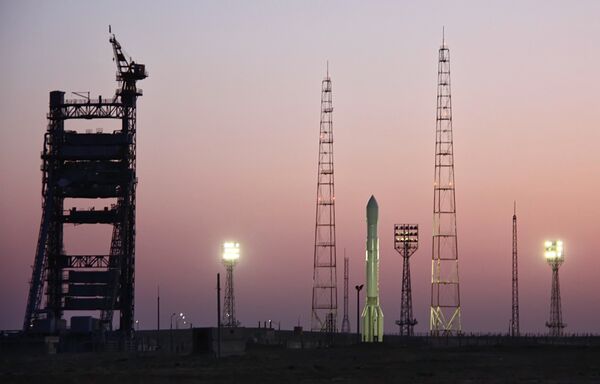Russia will put eight Glonass-M satellites into orbit in 2011-2013 to ensure the effective operation of its satellite navigation network, a Russian space industry official said.
Glonass - the Global Navigation Satellite System - is the Russian equivalent of the U.S. Global Positioning System, or GPS, and is designed for both military and civilian use.
The network requires 18 operational satellites for continuous navigation services covering the entire territory of Russia and at least 24 satellites to provide navigation services worldwide.
"After the Glonass network is complete by the end of 2010, we will have to maintain it by replacing the satellites whose service life has expired," said Nikolai Testoyedov, the head of the Information Satellite Systems (ISS) company, which manufactures satellites for the Glonass project.
"We are making eight more satellites to fulfill this task, and we will launch them in 2011-2013," Testoyedov said in an interview with the Krasnaya Zvezda daily on Thursday.
Russia currently has a total of 26 Glonass satellites in orbit, but three of them are not operational. Three more Glonass-M satellites are scheduled for launch by the end of 2010, allowing Russia to operate a complete Glonass network and have 3-4 satellites in reserve.
Meanwhile, the ISS will continue testing new Glonass-K satellites, which have a lifetime of 10 to 12 years and a reduced weight of only 750 kg. These satellites will gradually replace Glonass-Ms in the network.
MOSCOW, October 22 (RIA Novosti)


